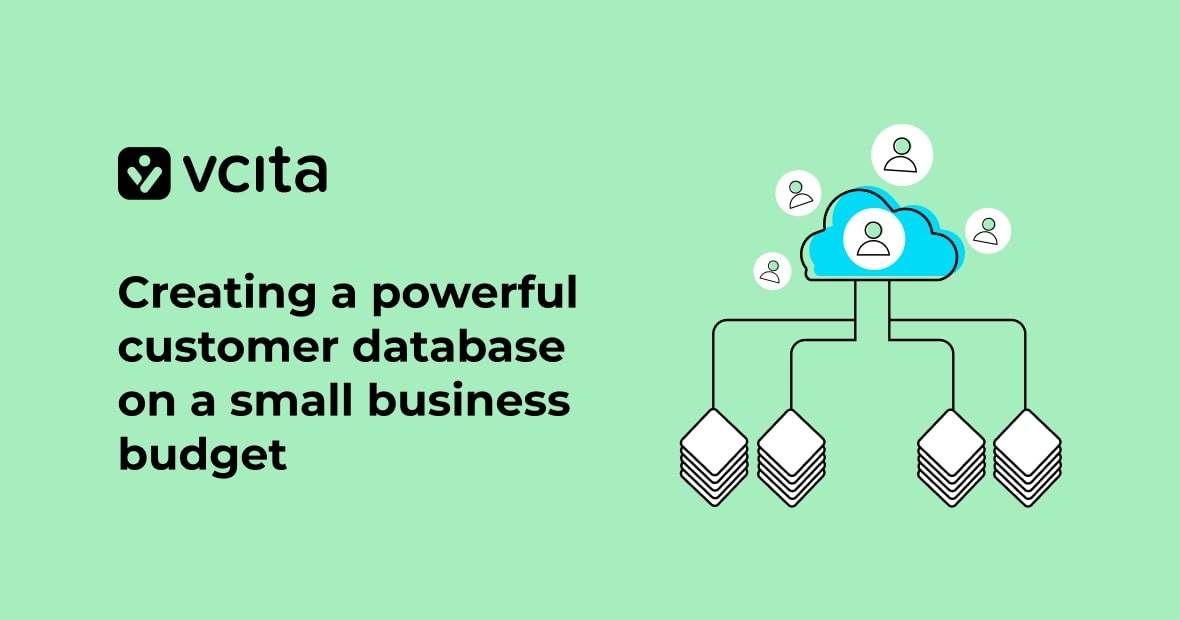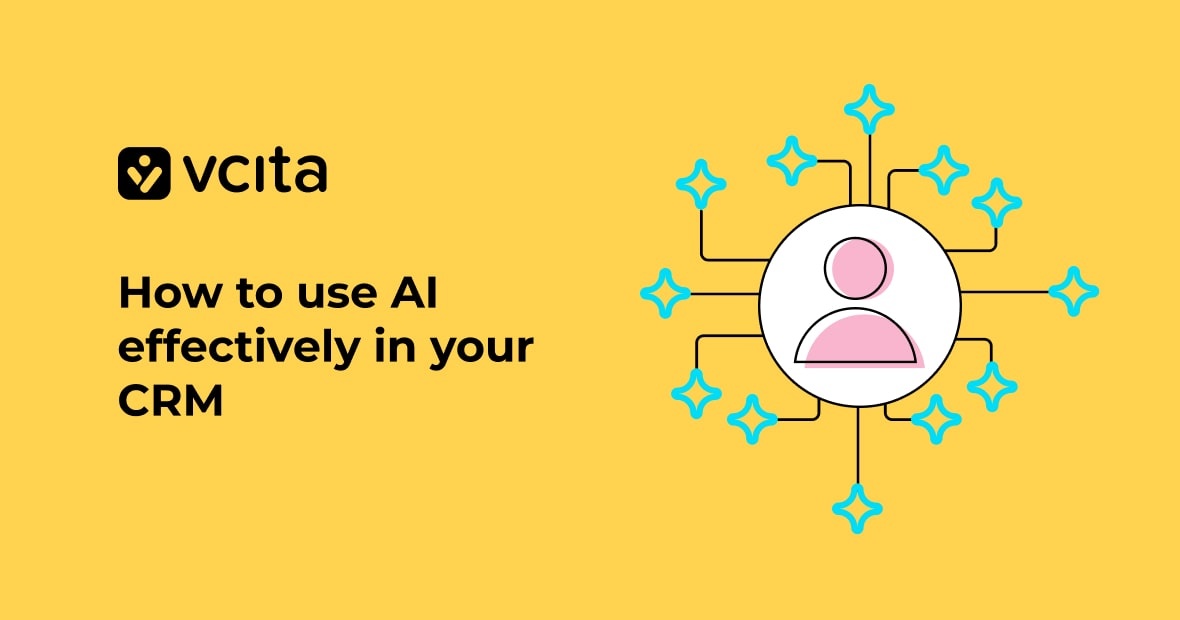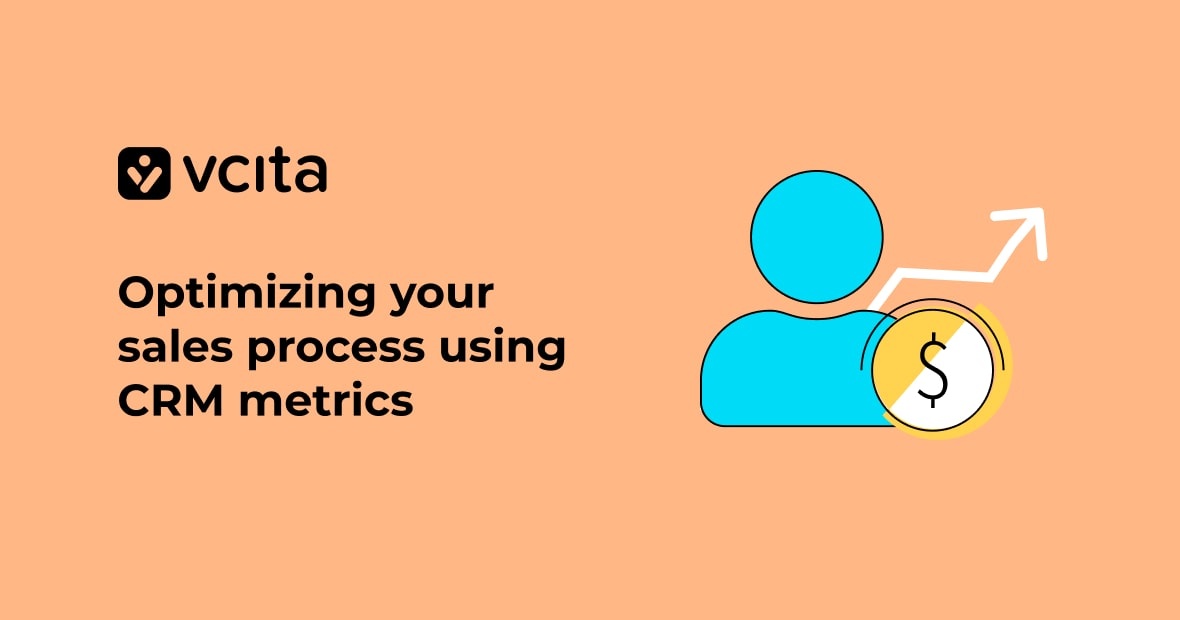You know that excellent customer relationships depend on effective customer data, but you’re just not just how to organize your data. You dream about having all your client data at your fingertips – from email addresses to sales history – empowering your sales team and boosting customer service.
The good news is that creating a powerful customer database doesn’t have to break the bank. With a few smart moves, you can transform those scattered business cards and scribbled phone numbers into a goldmine of customer information.
Read on to learn how you can create a customer database that’ll take your small business to the next level, without emptying your wallet.
Why you need a customer database for your small business
In today’s competitive business landscape, a robust customer database is your secret weapon for success. By creating a customer database, you’re not just collecting contact information – you’re building a treasure trove of insights that can transform your small business.
Streamline customer relationship management
A well-organized customer database allows you to manage customer interactions effortlessly. From tracking incoming calls to storing email addresses, you’ll have all the customer information you need at your fingertips. This centralized system empowers your sales team and customer service representatives to provide personalized experiences, nurturing loyal customers who keep coming back.
Boost your marketing efforts
With a comprehensive client database, you can supercharge your marketing strategies. Analyze customer data to identify trends, segment your customer base, and tailor your messaging for maximum impact. Whether you’re running email campaigns or engaging on social media, your customer database becomes the foundation for targeted, effective marketing that moves prospects through your sales funnel.
Enhance decision-making
By leveraging customer database software, you gain valuable insights into your client data. This information helps you make data-driven decisions about product development, pricing strategies, and customer retention efforts. In the world of small business, knowledge truly is power, and your customer database is the key to unlocking that power.
Collecting customer information and building your database
Building a powerful customer database doesn’t have to break the bank. With the right strategies, you can gather valuable customer information and create a robust client database that fuels your business growth.
Leverage every touchpoint
Every interaction with your customers is an opportunity to collect data. When a customer makes a purchase, signs up for your newsletter, or reaches out to your customer service team, make sure you’re capturing their contact information. This includes basics like their name, email address, and phone numbers, but don’t stop there. The more you know about your customers, the better you can serve them.
Invest in technology
Good customer database software can streamline your data collection and management processes. Many affordable options, like vcita, offer comprehensive customer relationship management features tailored for small businesses with flexible subscription plans. These tools can help you organize customer data, track interactions, and even manage your sales funnel, all in one place.
Encourage information sharing
Get creative in incentivizing your customers to share their information. Offer exclusive content, discounts, or early access to new products in exchange for completing a detailed profile. Use social media contests or surveys to gather insights while engaging your audience. Remember, the key is to make it worthwhile for your customers to participate.
Organizing and managing your customer data
Effective organization and management of your customer data is crucial for small business success. A well-structured customer database can be a game-changer, helping you streamline operations and boost your bottom line.
Centralize your customer information
Start by consolidating all your client data into a single, easily accessible location. This includes contact information like phone numbers and email addresses, as well as purchase history and communication preferences. By creating a customer database that’s comprehensive and up-to-date, you’ll empower your sales team and customer service representatives to provide personalized experiences that keep clients coming back.
Choose tools that boost efficiency
Invest in customer database software that fits your budget and needs. Many affordable options, like vcita, offer robust features for managing customer relationships. These tools can help you track incoming calls, manage your sales funnel, and even integrate with social media platforms. By automating data entry and organization, you’ll free up time to focus on building relationships with your loyal customers.
Maintain data quality
Regularly clean and update your client database to ensure accuracy. Set up systems for capturing new customer information during each interaction, whether it’s an in-person visit or an online purchase. Remember, a well-maintained customer base is key to understanding your audience and tailoring your marketing efforts for maximum impact.
Analyzing your customer database to improve sales
Your customer database is a goldmine of information that can supercharge your sales efforts. Here’s how to dive deep into your customer data to uncover valuable insights that boost your bottom line.
Segment your customer base
Start by dividing your customers into meaningful groups based on shared characteristics. This could include demographics, purchase history, or engagement levels. Segmentation allows you to tailor your marketing and sales approaches for maximum impact.
Identify your most valuable customers
Use your client database to pinpoint your VIPs – those loyal customers who generate the most revenue. Focus on nurturing these relationships, and look for ways to replicate their success across your customer base.
Spot trends and patterns
Analyze your customer information to uncover buying trends and behavior patterns. This can help you anticipate needs, optimize your product offerings, and time your sales outreach for the best results.
Personalize your approach
Leverage the rich customer data in your database to create personalized experiences. Use their purchase history, preferences, and interactions to craft targeted messages that resonate with each segment of your audience.
By regularly analyzing your customer database, you’ll gain actionable insights to refine your sales funnel, improve customer service, and ultimately drive more revenue for your small business.
Choosing the right customer database software on a budget
When it comes to creating a customer database for your small business, selecting the right software is crucial. You can get a powerful solution that meets your needs without overspending your budget.
Consider your specific requirements
Start by listing out your must-have features. Do you need robust contact information management? Are you looking for tools to track your sales funnel? Make sure the software can handle your customer data effectively.
Evaluate free and low-cost options
Many customer database software options offer free tiers or affordable plans for small businesses. vcita, for example, provides an all-in-one solution that includes customer relationship management features.
Prioritize user-friendliness
Choose software that your sales team and customer service staff can quickly learn, with an intuitive interface that has a gentle learning curve. Look for options that allow you to easily import csv files of your existing client data.
Look for integration capabilities
Your customer database should play nice with your other tools. Whether it’s syncing with your email marketing platform or connecting to your social media accounts, integration can streamline your workflow and help you better serve your loyal customers.
Supercharge your small business with an affordable customer database
Finding the right customer database software will help you organize your customer base, improve your sales process, and ultimately grow your business, all without overspending. By leveraging customer database software, you’ll supercharge your sales funnel and provide stellar customer service, helping grow your business’ bottom line.




























